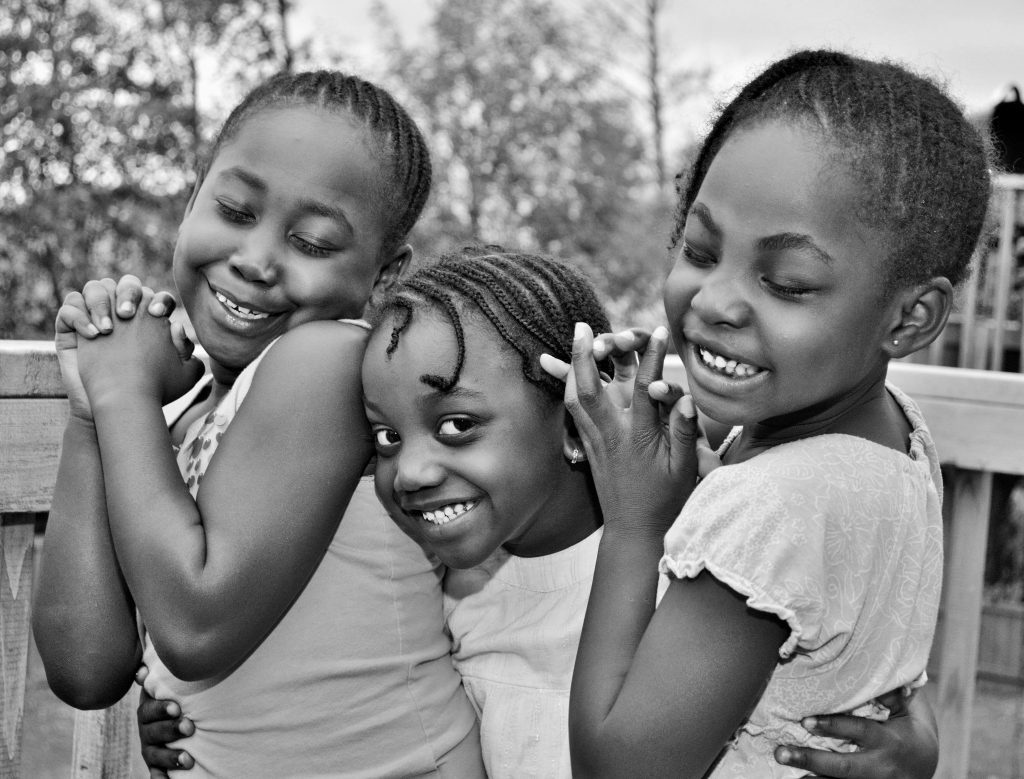Depression is a leading cause of disability and poor health worldwide and is expected to rank first by 2030 (Mental Health Statistics, n.d.).
The notion of intergenerational trauma in relation to the development of depression and other mental illnesses has been recognised for some time. Intergenerational trauma can be considered to include any exposure to extremely adverse events that impacts an individual so much that their children find themselves wrestling with their parents’ post‐traumatic state. Chan et al. (2018) reported on the growing evidence supporting the idea that children are affected by parental exposure to traumas occurring before their birth, and possibly even prior to their conception.
Racism may play one such part in the transmission of intergenerational trauma. Describing the nuances of racism is beyond the scope of this blog, but one definition classifies it as organised systems within societies that create unfair inequalities in power, resources, capacities, and opportunities across racial or ethnic groups (Paradies et al., 2015).
Murry et al.’s (2018) integrative model of stress is one way to bridge the gap between the transmission of trauma and racism. This model argues that racism can cascade through intergenerational experiences in many forms of discrimination and oppression, which can impact the parent-child relationship and attachment. This is thus indirectly affecting the child’s mental health and leading to ongoing emotional difficulties. This has received some support in the literature (e.g., Mekawi et al., 2021; Roubinov et al., 2022).
Despite theories explaining how intergenerational trauma manifests, to date there has been less work exploring and unpicking the details in the typically disproportionately harmed Black mother-child dyad. We already know outcomes are typically worse for this group, so do maternal experiences of racism indirectly drive the development of depression in their children through an initial impact on maternal depression? And if this is the case, do higher degrees of maternal trauma impact this? This blog outlines the work of Mekawi et al. (2023) that explored just this issue.

Racism and trauma cascaded through intergenerational experiences can profoundly impact the parent-child relationship.
Methods
A cross-sectional quantitative study recruited 148 women (Black or African American mothers with low socioeconomic resources, aged 20 to 59 years) and their children (aged 7 to 13) from various primary care and physical health clinics in a large urban city in the south-eastern US. This ‘middle childhood’ phase was chosen as it’s a time when children are more exposed to overt media racism, something associated with greater rates of depression.
Several self-report measures were used to collect data, including:
- Experiences of Discrimination (EoD) measured discrimination across nine situations.
- Beck Depression Inventory-II (BDI-II) assessed maternal depressive symptoms.
- Behavioural Assessment System for Children (BASC-2) evaluated child depressive symptoms.
- Traumatic Events Inventory (TEI) assessed the child’s experiences of potential traumatic incidents.
Results
Rates of discrimination and trauma were high in the study sample: as examples, only about a third (37%) said they had never experienced racial discrimination, and, shockingly, only 8% said they had never suffered any of the traumas listed. Sadly, almost 44% reported having been attacked by a spouse or romantic partner, and just under a quarter (24%) had such an attack where a gun, knife or weapon was involved.
Results showed that maternal experiences of racism and trauma were associated with more severe maternal depression (racism: r = 0.37, p < .01; trauma: r = 0.49, p < .01), and more severe child depression (racism: r = 0.19, p = .02; trauma: r = 0.34, p < .01). Maternal experiences of racism were indirectly associated with child depression, and this was mediated through the effect of maternal depression (ab =0.76, 95% CI [0.261 to 1.367]).
Notably, exposure to trauma showed a stronger association with maternal and child depression than experiences of racism.
Importantly, there was a compounding effect: when there were relatively lower levels of maternal trauma exposure, the indirect effect of maternal experiences of racism on child depression became non-significant. However, when there were relatively higher levels of maternal trauma exposure, the indirect effect of maternal experiences of racism on child depression were statistically significant.

This study suggests that maternal experiences of racism and trauma are associated with more severe maternal and child depression. The relationship with trauma was stronger than the relationship with racism.
Conclusions
Findings from the current study support that there is a link between maternal experiences of racism, maternal depression, and child depression in Black mother-child dyads. Further, the degree of maternal trauma exposure was shown to influence the indirect effects of maternal experiences of racism on child depression.
Overall, the current study helps to explain the intergenerational effects of racism and trauma on mental health, which can exacerbate racism’s consequences across generations.

The degree of maternal trauma is a key mediator of the impact on children, with lower levels of maternal trauma making the indirect effect of maternal experiences of racism on child depression non-significant.
Strengths and limitations
The study offers deeper insights into the complex connection between racism, trauma, and mental health in Black mothers and children. One can only say that more research of this nature has been needed, and the current study is a very positive contribution to the literature.
The study’s cross-sectional nature limits our ability to draw definite conclusions about the relationships found or to explore changes over time, and ascribe any causality to the findings. A longitudinal study could have provided a more nuanced understanding of intergenerational transmission of traumatic stress, considering factors like racial identity and racial socialisation.
The study solely relied on parent-reported scores for assessing the child’s experiences of racism, potentially limiting the assessment’s comprehensiveness and accuracy. The exclusion of the child’s perspective raises the question about the influence of the mother’s depressive symptoms on their assessment of their child’s behaviours. Research has shown that parental mental health can impact how parents perceive and report their child’s behaviours (Najman et al., 2001). Holding this in mind, missing this information potentially affected the study’s ability to capture the child’s subjective experience independently.
Participants were approached in waiting rooms, and one can argue about the representativeness of the participant population that may not fully reflect the diversity within the wider community. Exclusion of participants due to missing data may hinder some interpreting and generalising the findings, making it challenging to extend the results to Black Americans in other settings and regions. The applicability to non-US populations is uncertain, given the culturally unique aspects that can occur in each country, whilst accepting the sad fact of the universality and ubiquitousness of racism.

Mekawi et al. (2023) offer deeper insights into the complex connection between racism, trauma, and mental health, with some limitations from the representativeness of the participant population.
Implications for practice
As two psychological professionals working within a Child and Adolescent Mental Health Services (CAMHS) setting, for us, the implications of this study are wide-ranging.
Despite systemic inequalities and challenges to accessing healthcare, the findings from the current study reinforce the importance of a holistic approach to assessment and formulation. This is especially vital when working with families and young people who have experienced racism and trauma. The interconnected nature of mental health, parental trauma exposure and child depression suggested in this study highlights the need to adopt a systemic approach as well as evidence-based and culturally sensitive trauma-informed care. Depression within a family is not isolated but instead influenced by family dynamics. A systemic lens can allow for professionals working with families to recognise interrelated patterns, dynamics, and coping mechanisms within families, shedding light on broader contextual factors shaping a family’s experiences.
The authors suggest that screening for such difficulties is essential. However, this opens up the question of how easy people might find it to talk about such a challenging topic, especially if the clinician – already in a position of a power – is of a different ethnicity or gender. In the paper, the authors address this, noting “race based mistrust of the health care system”, the need to educate healthcare professionals, and the need for culturally sensitive frameworks for assessment and treatment. They offer the EMBRace programme (‘engaging, managing, and bonding through race’) as one possible solution.
The study talked about a nuanced pathway linking maternal experiences of racism to child depression through maternal depression. This shows that racism not only directly affects mothers but also impedes their ability to thrive and feel secure, potentially contributing to a higher risk of depression in both mothers and children. The moderating effects of high maternal exposure to trauma adds complexity, indicating that trauma may intensify the interplay between racism, maternal depression, and adverse child outcomes. This led us to reflect on the stigma of mental illness, and how race or ethnicity may not only be excluded from community conversations but also from discussions with children.
Overall, the study’s findings emphasise the need for comprehensive, culturally sensitive, and trauma-informed interventions. The study prompts further reflection on systemic challenges impacting service delivery and advocates for an integrative, multi-level strategy in addressing mental health disparities.

There is a need for more comprehensive, culturally sensitive, and trauma-informed assessments and interventions throughout clinical practice.
Statement of interests
None.
Links
Primary paper
Mekawi Y, Ishiekwene MN, Jimenez AN, Ware M, Carter SE, Stenson AF, Jovanovic T, Bradley-Davino B, Powers A. (2023). Intergenerational Transmission of Depression: Examining the Roles of Racism and Trauma Among Black Mothers and Youth. Journal of the American Academy of Child & Adolescent Psychiatry. https://doi.org/10.1016/j.jaac.2023.04.016
Other references
Chan, J., Nugent, B. M., & Bale, T. L. (2018). Parental Advisory: Maternal and paternal stress can impact offspring neurodevelopment. Biological Psychiatry, 83(10), 886–894.
Mekawi, Y., Carter, S., Brown, B., Martinez de Andino, A., Fani, N., Michopoulos, V., & Powers, A. (2021). Interpersonal Trauma and Posttraumatic Stress Disorder among Black Women: Does Racial Discrimination Matter? Journal of Trauma & Dissociation, 22(2), 154–169.
Mental Health Statistics. (n.d.). Www.mentalhealth.org.uk. Retrieved January 31, 2024, from https://www.mentalhealth.org.uk/explore-mental-health/statistics?gad_source=1&gclid=EAIaIQobChMIyIrewMmIhAMV5pFQBh0AqQiyEAAYAiAAEgJ6UvD_BwE
Murry, V. M., Butler-Barnes, S. T., Mayo-Gamble, T. L., & Inniss-Thompson, M. N. (2018). Excavating New Constructs for Family Stress Theories in the Context of Everyday Life Experiences of Black American Families. Journal of Family Theory & Review, 10(2), 384–405.
Najman, J. M., Williams, G. M., Nikles, J., Spence, S., Bor, W., O’Callaghan, M., Le Brocque, R., Andersen, M. J., & Shuttlewood, G. J. (2001). Bias influencing maternal reports of child behaviour and emotional state. Social Psychiatry and Psychiatric Epidemiology, 36(4), 186–194.
Paradies, Y., Priest, N., Ben, J., Truong, M., Gupta, A., Pieterse, A., Kelaher, M., & Gee, G. (2013). Racism as a determinant of health: a protocol for conducting a systematic review and meta-analysis. Systematic Reviews, 2(1).
Roubinov, D., Browne, D., LeWinn, K. Z., Lisha, N., Mason, W. A., & Bush, N. R. (2022). Intergenerational transmission of maternal childhood adversity and depression on children’s internalizing problems. Journal of Affective Disorders, 308, 205–212.




